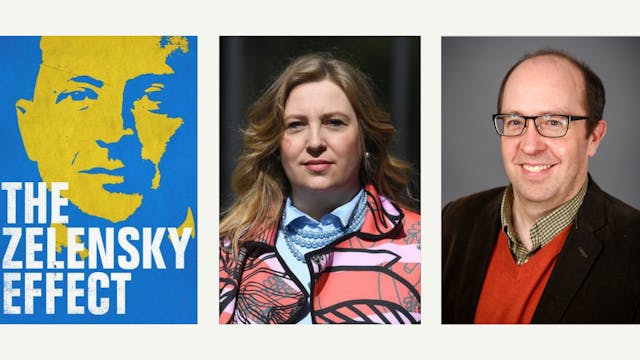Don't give them what they want: Terrorists should be starved of publicity
Politics & Economics
•
1h 25m
Why do they do it? Again and again, after every attack, our media react by giving the terrorists exactly what they want – maximum publicity. Of course, the public should be told that an atrocity has taken place. But each attack dominates the news for days at a stretch. The TV networks go into overdrive, flying out their journalists to the scene of the attack and saturating their airtime. All this plays into the hands of terrorist organisations, allowing their killers to be glorified in the eyes of their supporters. In addition, the wall-to-wall news coverage creates a climate of fear and fuels the more authoritarian and xenophobic strands of our politics. President Trump’s recent actions – banning refugees and appearing to reference fictional terrorist attacks in Sweden – might be seen as an inevitable consequence of this hysteria. We should get things into proportion. After all, you’re more likely to fatally slip in the shower than be killed in a terrorist attack.
This is the line that was taken by former Times editor and Guardian columnist Simon Jenkins. He was joined by Fawaz Gerges, a prominent expert on ISIS and al-Qaeda who has extensively researched the historical roots of jihadi extremism on the ground in the Middle East. Gerges explained how the West has played into the narrative of terrorists by portraying them as an existential danger, rather than as mere common criminals.
But for national security commentator Douglas Murray, the only way to defeat terrorism is to tackle it head on, speaking plainly about the true scale of the threat. The recent wave of attacks by ISIS was just the beginning, he argued. Over a thousand foreign fighters have recently returned from Syria to Europe, and are highly likely to pose a risk to our security. It’s vital that our media and authorities keep the public fully aware about the terrorist threat and encourage everyone to be vigilant. Honest reporting is absolutely crucial, especially when society itself is under attack. As for ISIS, how they are portrayed in the mainstream media is a matter of indifference to them – their publicity strategy is all about broadcasting their attacks on social media to an audience of millions, not headlines in the press.
Up Next in Politics & Economics
-
The Zelensky Effect, With Dr Olga Onu...
In February 2022 Russian shells rained down on Kyiv as tanks crossed the border into Ukraine. At the time American forces prepared to evacuate President Volodymyr Zelensky for fear of his life. But Zelensky refused to abandon his country, saying ‘I need ammunition, not a ride’ and quickly became ...
-
Xi’s China: What does the future hold...
As protests erupted last week across China in response to continuing lockdowns and the country's zero covid policy, two leading experts join Intelligence Squared to discuss how significant a moment this is for China and President Xi Jinping. Some commentators have compared the protests to 1989, w...
-
The Economy in 2023: Where Do We Go F...
Russia’s war on Ukraine, Liz Truss’s ‘mini budget’ and soaring inflation from Covid lockdowns all hammered the U.K economy in 2022. But as we begin a new year with a new Prime Minister – how much drama and uncertainty should we expect in 2023?
On Thursday January 5 we bring together an expert p...



